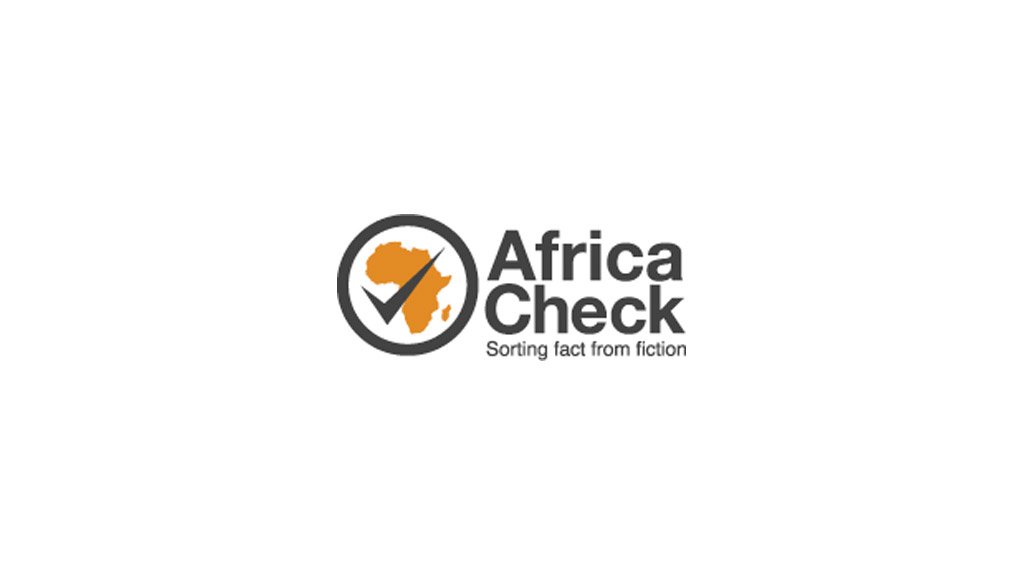
Africa’s most populous country accounts for 10% of the global number of maternal deaths, the organisation claimed on the social media platform X, formerly known as Twitter.
The claim was made as part of a campaign aimed at highlighting the dangers of unsafe abortions.
We took a closer look.
Stat attributed to Unicef
Wemimo Adewuni, the organisation's spokesperson, told Africa Check in an email that the data came from Unicef, the United Nations children's agency.
She shared a link to an article titled Situation of women and children in Nigeria. The article was worded slightly differently and said that while Nigeria “represents 2.4 per cent of the world’s population, it currently contributes 10 per cent of global deaths for pregnant mothers”.
However, the article had no publication date. (Searches on Google and the Wayback Machine suggest that it first appeared online in early 2019.)
What is maternal death?
The World Health Organization (WHO) defines maternal death as any death of a woman during pregnancy, childbirth or up to 42 days after giving birth. These deaths do not include accidents.
A late maternal death is “the death of a woman from direct or indirect obstetric causes, more than 42 days but less than one year after termination of pregnancy”.
A direct maternal death results from obstetric complications, interventions, omissions and mistreatment. Other causes include haemorrhage or hypertensive disorders, complications of anaesthesia and caesarean section.
Indirect maternal deaths result from pre-existing conditions or conditions developed during pregnancy that are not directly obstetric in origin but are aggravated by the physiological effects of pregnancy.
Highest estimated number of maternal deaths in the world
Rajat Madhok, a spokesperson for Unicef Nigeria, referred us to the WHO’s Trends in maternal mortality report 2000 to 2020 for reliable data.
Ann-Beth Moller, a technical officer in the WHO’s department of sexual and reproductive health, confirmed this was the most recent estimate.
The report is based on joint estimates from Unicef, WHO, the United Nations Population Fund and the World Bank.
|
HIGHEST AND LOWEST NUMBER OF MATERNAL DEATHS IN THE WORLD |
|||
|
HIGHEST |
LOWEST |
||
|
COUNTRY |
DEATHS |
COUNTRY |
DEATHS |
|
Nigeria |
82,000 |
Iceland |
0 |
|
India |
24,000 |
Malta |
0 |
|
The Democratic Republic of the Congo |
22,000 |
Luxembourg |
0 |
|
Ethiopia |
10,000 |
Montenegro |
0 |
|
Pakistan |
9,800 |
Grenada |
0 |
|
Afghanistan |
8,700 |
Seychelles |
0 |
|
Chad |
7,800 |
Antigua and Barbuda |
0 |
|
Indonesia |
7,800 |
Barbados |
1 |
|
United Republic of Tanzania |
5,400 |
Belarus |
1 |
|
Niger |
4,900 |
Estonia |
1 |
|
Uganda |
4,700 |
Micronesia (Federated States of) |
1 |
|
Somalia |
4,500 |
North Macedonia |
1 |
|
*Number of maternal deaths |
According to the data, Nigeria had the highest estimated number of maternal deaths at 82,000, accounting for more than a quarter (28.5%) of all estimated global maternal deaths in 2020.
“Three other countries had more than 10,000 maternal deaths in 2020: India (24,000), the Democratic Republic of the Congo (22,000) and Ethiopia (10, 000), with 8.3%, 7.5% and 3.6% of global maternal deaths, respectively,” Moller said.
Poor access to health care a driving factor
There could be many reasons why Nigeria still had a high number of maternal deaths, Moller told Africa Check.
Data from the 2018 Nigeria Demographic Health Survey, the latest available, showed that the use of antenatal care (57%), skilled birth attendants (43%), facility births (39%), caesarian rate (3%) and postpartum care (42%) were still relatively low, she said.All of these have an impact on maternal health outcomes and well-being.
Helena Nordenstedt works in the department of global public health at Karolinska Institutet in Stockholm, Sweden. She said that in general, the vast majority of maternal deaths take place in places where access to health care is poor.
“As was noted by The Lancet journal, a former Nigeria minister of health, Isaac Adewole, spoke the truth when stating that the real causes of maternal and child deaths are ‘poverty, inequality, lack of financing, and poor governance’.”
Conclusion: Nigeria accounts for 28.5% of the world's maternal deaths, not 10%, according to the latest data.
Nigerian campaign group Women Advocates Research and Documentation Centre told its more than 20,000 followers on X that Nigeria’s share of global maternal deaths was 10%.











